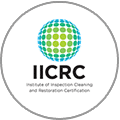Knowing what your insurance coverage does and does not cover is crucial for homeowners. Many people believe that their insurance will cover all forms of damage when it comes to water damage. That isn’t always the case, though. There are really a number of unexpected causes of water damage that may not be protected by insurance. We’ll talk about these reasons in this blog article and offer advice on how to guard against unforeseen costs.
Water Damage: What Is It?
Any Damage that is caused by water is referred to as water damage. This may involve damage caused by leaks, floods, or even humidity. Water damage can result in structural damage, mold growth, and other problems that can be expensive to fix.
What Kinds of Water Damage Insurance Cover?
It’s crucial to know what kinds of water damage are normally covered by insurance before we discuss the kinds of water damage that could not be. The majority of home insurance coverage will cover harm brought on by:
• Plumbing problems
• Accidental leaking from equipment like washing machines and dishwashers;
• Storms and floods
It’s crucial to remember that the coverage your insurance policy offers frequently has limitations. For instance, your insurance might only provide coverage up to a certain threshold of damage, and you would have to cover a deductible first.
Water Damage Types Not Covered by Insurance
1. Neglect
Your insurance provider could reject your claim for water damage if you neglect to maintain your property. For instance, if you neglect to fix a leaky roof, your insurance provider can claim that the damage wasn’t covered because it was the result of your carelessness.
2. Gradual Injury
Damage that develops gradually rather than as a result of a rapid event is referred to as gradual damage. For instance, your insurance provider might not pay for cleanup if you have a gradual pipe leak that eventually results in mold growth. This is due to the fact that gradual damage is frequently viewed as a maintenance issue that the homeowner should take care of.
3. Sewage Backflow
Numerous problems, such as clogs, tree roots, and damage to sewer lines, can result in sewer backups. Sadly, the majority of homeowner’s insurance policies do not provide coverage for damage brought on by sewer backups.
4. Groundwater Seepage
It’s crucial to frequently inspect your sewer lines and take precautions to avoid blockages if you want to stay safe. Groundwater seepage is the term used to describe water that enters your home from below ground. When the water table rises or there has been a lot of rain, this can happen. Unfortunately, damage brought on by groundwater seepage is typically not covered by homeowner insurance plans.
5. Insurance Isn’t Paying for Water Damage: God’s actions
Events that are uncontrollable by human action, such as hurricanes, tornadoes, and earthquakes, are referred to be acts of God. Even though most homeowner’s insurance policies will cover damage brought on by these occurrences, not all types of damage may be covered. For instance, your insurance coverage could not pay for mold remediation if a hurricane causes a flood that damages your property.
Self-Protection Against Water Damage
It’s crucial to take the following actions to safeguard yourself from unforeseen costs associated with water damage:
1. Recognise Your Insurance Contract
Review your insurance policy and familiarise yourself with its coverage details. For more information if necessary, get in touch with your insurance provider.
2. Take Care of Your Property
Water damage can be avoided with routine maintenance. This covers tasks like gutter maintenance, leak repair, and plumbing troubleshooting.
3. Exercise Caution
You can take a number of actions to lessen your chance of water damage. A sump pump can be installed in your basement to prevent floods, or shut-off valves can be installed on your appliances to stop leaks.
4. Purchase Extra Protection
You might be able to buy more coverage if you’re worried about your insurance policy’s restrictions. For instance, you might have separate coverage for sewer backups or flood insurance.
5. Move Swiftly
In the event that water damage occurs, you must move swiftly. The more extensive the damage will be the longer you wait. Document the damage and get in touch with your insurance provider right once.
Conclusion
For homeowners, water damage may be an expensive and frustrating event. There are a surprising number of unexpected causes of water damage that may not be covered by insurance, even if many other kinds of water damage are. You can safeguard yourself from unforeseen costs by comprehending your insurance coverage, preserving your property, and taking safeguards. To guarantee a fast claims procedure, take quick action and document any water damage if it occurs.
For additional information on preventing water damage and protecting your home, we recommend the following external resources:
Disclaimer:
The information provided here is based on our experience and expertise, each insurance provider handles claims differently and it’s important to contact your agent with questions related to your specific policy. We’re on your team during a water damage claim and will work with you and your insurance provider through the entire process.






